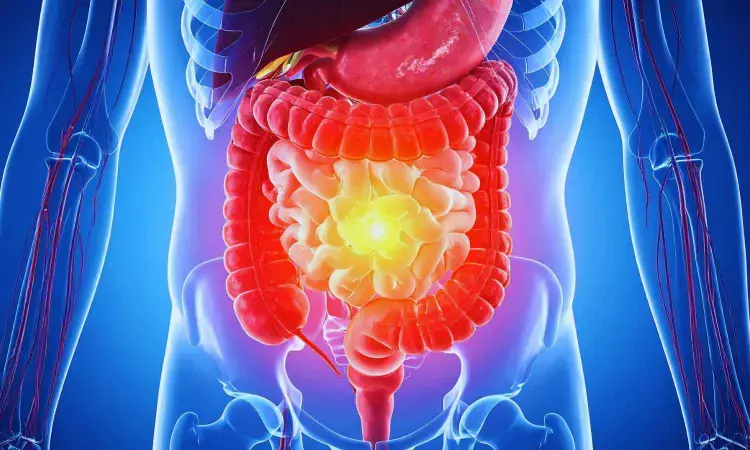- Home
- Medical news & Guidelines
- Anesthesiology
- Cardiology and CTVS
- Critical Care
- Dentistry
- Dermatology
- Diabetes and Endocrinology
- ENT
- Gastroenterology
- Medicine
- Nephrology
- Neurology
- Obstretics-Gynaecology
- Oncology
- Ophthalmology
- Orthopaedics
- Pediatrics-Neonatology
- Psychiatry
- Pulmonology
- Radiology
- Surgery
- Urology
- Laboratory Medicine
- Diet
- Nursing
- Paramedical
- Physiotherapy
- Health news
- Fact Check
- Bone Health Fact Check
- Brain Health Fact Check
- Cancer Related Fact Check
- Child Care Fact Check
- Dental and oral health fact check
- Diabetes and metabolic health fact check
- Diet and Nutrition Fact Check
- Eye and ENT Care Fact Check
- Fitness fact check
- Gut health fact check
- Heart health fact check
- Kidney health fact check
- Medical education fact check
- Men's health fact check
- Respiratory fact check
- Skin and hair care fact check
- Vaccine and Immunization fact check
- Women's health fact check
- AYUSH
- State News
- Andaman and Nicobar Islands
- Andhra Pradesh
- Arunachal Pradesh
- Assam
- Bihar
- Chandigarh
- Chattisgarh
- Dadra and Nagar Haveli
- Daman and Diu
- Delhi
- Goa
- Gujarat
- Haryana
- Himachal Pradesh
- Jammu & Kashmir
- Jharkhand
- Karnataka
- Kerala
- Ladakh
- Lakshadweep
- Madhya Pradesh
- Maharashtra
- Manipur
- Meghalaya
- Mizoram
- Nagaland
- Odisha
- Puducherry
- Punjab
- Rajasthan
- Sikkim
- Tamil Nadu
- Telangana
- Tripura
- Uttar Pradesh
- Uttrakhand
- West Bengal
- Medical Education
- Industry
New Iron Supplement Combining Iron, Prebiotics, and Probiotics may Treat Anemia Without Causing Inflammation: Study

Iron-deficiency anemia is a common condition marked by tiredness, headaches or ice cravings. But the oral iron supplements used to treat it can leave behind excess iron that causes inflammation and an upset stomach. A new supplement reported in ACS Applied Materials & Interfaces combines iron, prebiotics and probiotics. In trials, the treatment successfully restored blood iron levels in anemic mice without initiating an inflammatory response or throwing off the balance of the gut microbiota.
“By advancing biomaterial-based iron delivery, this research offers a transformative approach to address anemia, directly contributing to improved nutrition and long-term public health,” explains Poonam Sagar, an author of the study.
Anemia occurs when there aren’t enough red blood cells available to shuttle oxygen around the body. It can be caused by infections, genetic factors or nutritional deficiencies-namely, a lack of iron in one’s diet. To treat iron-deficiency anemia, clinicians typically prescribe oral iron supplements. However, very little of the iron within the tablets is absorbed into the body. And any leftover iron can cause an imbalance in the gut microbiome, resulting in irritation and/or inflammation in the gut. As a result, iron supplements are sometimes co-prescribed with probiotics to help beneficial bacteria proliferate.
Scientists have previously combined iron supplements with probiotics into a single treatment option. Now, Sagar, Nitin Kumar Singhal and colleagues took this approach a step further by adding in prebiotics — essentially, food for the probiotic bacteria — to create a three-part iron supplement that could be more effective than existing options.
The researchers combined dietary fiber from millet (a type of grain), probiotic Lactobacillus rhamnosus bacteria, and an iron-containing complex to form the supplement. In tests, they determined the three-part treatment’s biocompatibility in human cell cultures and demonstrated its effectiveness in mice with iron-deficiency anemia. After two weeks, mice fed the supplement showed:
- Restored hemoglobin levels (the primary iron-containing molecule in red blood cells).
- Excretion of iron amounts similar to those of a control group of non-anemic mice, showing successful iron uptake by the body.
- Upregulation of genes associated with iron transport via red blood cells indicated that iron metabolism was restored.
- A minimal inflammatory response in the colon.
- Restored populations of beneficial gut bacteria compared to those of the anemic mice.
Though further studies are needed, the researchers say that this initial work provides a more effective iron supplement treatment option that can minimize side effects and promote public health.
Reference:
Sunaina Kaul, Prateeksha Veena, Poonam Sagar, Geetika Bajaj, Niket Rana, Akash Thakur, Hyaluronic Acid Hydrogel-Based Oral Delivery of Iron Supplemented with Probiotic and Prebiotic Ameliorates Iron-Deficiency Anaemia, ACS Applied Materials & Interfaces, DOI: 10.1021/acsami.5c11368.
Dr Kamal Kant Kohli-MBBS, DTCD- a chest specialist with more than 30 years of practice and a flair for writing clinical articles, Dr Kamal Kant Kohli joined Medical Dialogues as a Chief Editor of Medical News. Besides writing articles, as an editor, he proofreads and verifies all the medical content published on Medical Dialogues including those coming from journals, studies,medical conferences,guidelines etc. Email: drkohli@medicaldialogues.in. Contact no. 011-43720751


